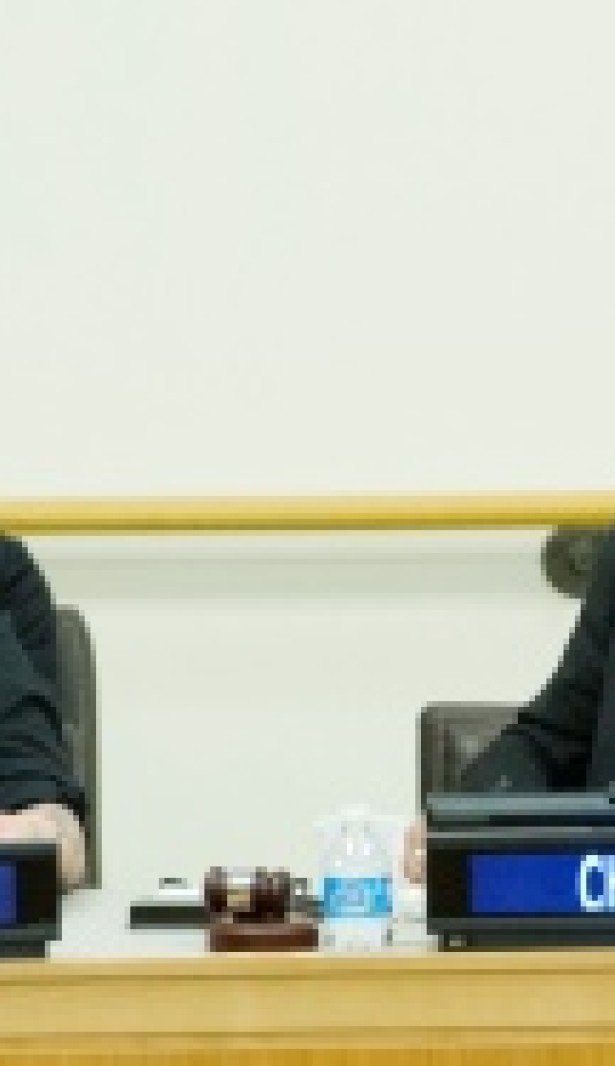Moving away from the death penalty: spotlight on wrongful convictions
05 July 2013

On June 28, 2013, the UN Office of the High Commissioner for Human Rights held a High-Level event on the death penalty. Opened by Secretary-General Ban Ki-moon, ‘Moving Away from the Death Penalty: Wrongful Convictions‘ examined globally the increasing number of wrongful convictions in death penalty cases, with a particular focus on the failure of judicial review to capture error in death penalty cases. The Assistant Secretary-General for Human Rights, Ivan Šimonović, moderated the event.
Attended by Damien Echols, one of the “West Memphis Three” who was wrongfully convicted and sentenced to death row for eighteen years, the event sought to further inform Member States about the increasing evidence of human rights violations in the application of the death penalty, including how innocent people such as Mr. Echols, have been sentenced to death.
In addition to Mr. Echols, panelists also included his legal counsel Stephen Braga, Professor Brandon Garrett, author of the book Convicting the Innocent: Where Criminal Prosecutions Go Wrong, and Mr. Saul Lehrfreund, Executive Director of the UK-based Death Penalty Project, a nonprofit that provides assistance to lawyers and NGOs in African, Asian and Caribbean countries in cases involving prisoners facing the death penalty.
The UN Secretary-General urged Member States to move towards the abolition of the death penalty, and called on countries where the procedure is still practiced to increase transparency around the application of the death penalty and to allow for a serious debate on utility of capital punishment. “We have a duty to prevent innocent people from paying the ultimate price for miscarriages of justice. The most sensible way is to end the death penalty,” said Mr. Ban.
Relating his experience, Mr. Echols remarked, “In the US, there is a saying that the death penalty acts as a deterrent. You cannot teach people that killing is wrong by killing someone. It just doesn’t make sense.”
In his concluding remarks, Mr. Lehrfreund affirmed the theme of the panel: “Miscarriages of justice will inevitably occur and no system can eliminate the execution of the innocent. Even in a world where criminal justice is error-free, it is impossible to enforce the death penalty without it being cruel and inhumane, akin to torture. That is my reason why the death penalty has no place in the world.”
The Office of the High Commissioner for Human Rights plans to hold two more panel events on the death penalty, on the question of whether capital punishment indeed has a deterrent effect, and on the issue of discrimination in the application of the death penalty.
New York, July 2013
